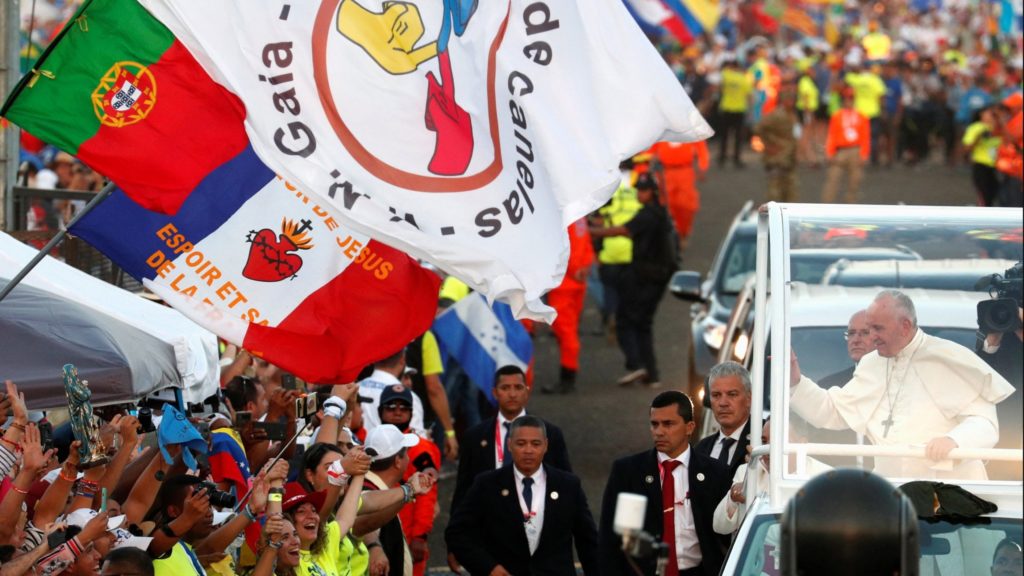Officials of the Catholic Church in India have asked the government of Portugal to ease the process of granting travel visas for young people planning to attend the August 1-6 World Youth Day in Lisbon, in order to accommodate almost 1,000 Indians hoping to take part in the event.
Often dubbed the “Olympics of the Catholic Church,” World Youth Day is a massive gathering of young people from around the world launched by St. John Paul II.
Whenever the event is staged in an affluent venue, however, there are often difficulties in granting visas to participants from developing nations, out of concern that some youth will remain behind and become undocumented workers and residents.
Recently, for instance, the bishops’ conference of the Philippines made a formal appeal to foreign embassies to reverse the denial of visas to 50 young Filipinos hoping to make the trip to Portugal. The Union of Catholic Asian News has reported that young Catholics from Pakistan and Bangladesh have also been denied visas by Portuguese authorities.
A Church official in Bangladesh said those refusals came despite the fact that applicants had been required to provide proof of their ability to cover the expenses of the trip, as well as a return ticket and health insurance coverage.
In many cases, young people hoping to make the trip are also required to be interviewed by embassy officials, though in some parts of the world applicants have reported not being called for the interview despite repeated requests.
Father Chetan Machado of the National Youth Commission for the Conference of Catholic Bishops of India told Crux that similar difficulties are facing Indian participants.
“We are facing a lot of issues and many rejections this time,” Machado said. “We are not even sure whether all registered will get a visa to travel.”
“They look for a guarantee that the visitors will return home” from a third party willing to assume the risk. “That’s very difficult to get,” Machado said.
At the moment, Machado said, there are 900 registered participants from India, 250 of whom are being sponsored by the bishops’ conference. Not all young people who take part in the event, however, are formally registered, so the actual tally could be higher.
As of June 30, there were 600,000 participants registered for World Youth Day in Lisbon, though organizers expect as many as two million people eventually to be on hand for the main events of the gathering, which will feature the presence of Pope Francis.
“All pilgrims were expected fill up the registration form and get the recommendation letter from the local bishop on the diocesan letterhead along with signature and seal,” he said. “There’s a lot of documentation required to register and get the visa.”
Machado said that Church officials recently met with the deputy head of mission in the Portuguese embassy in New Delhi to ask for an expedited process of visa approval, and he said the hope is that at least 80 percent of the Indian delegates eventually will be able to make the trip.
Plans call for the Indian youth to travel to the Diocese of Porto in Portugal for a “Days in the Diocese” program prior to the actual World Youth Day gathering, arriving in Lisbon July 26, assuming they’re able to secure the required permissions.
Machado said that protocols require delegates under the age of 18 to be entrusted to an adult with the written permission of their parents or legal guardians, by filling out a parental consent form as part of the registration process.
While Machado said the aim as much as possible is for participants to stay with host families in Portugal, some may be accommodated in public venues such as indoor stadiums, hostels, sports complexes and schools.
While in Lisbon, he said, several Catholic movements for young people are planning to organize international meetings, making it all the more imperative that as many participants as possible are able to go.

